Feeding your worms
-
How much can they eat?
Feeding your worms after you have just build or purchased your first worm farm might make you feel initially a little uneasy! You will possibly ask yourself some questions like:
What kind of food do worms eat? How much can worms eat? When and how often should they be fed? These are questions I've been asked countless times by worm composting friends that had just purchased their first worm farm and where eager to get their worms off to a good start in their new home.The good news is that
compost worms will basically eat anything that has ever been alive and is now dead!
So as long as one has access to some kitchen scraps, garden waste or pet waste there will be plenty of worm food available to support a worm bin. Our worm food rating list will give you an overview about the materials that worms like or dislike.
To work out how much food worms can eat we have to take a few points into consideration. In worm farming circles we generally assume that a compost worm (Eisnia fetida) can eat about half its body weight per day. This sounds easy enough but is actually only a rule of thumb. An important factor to take into account is the kind of food that is presented to the worms as well as the way and condition the organic materials are in when added to a worm farm.
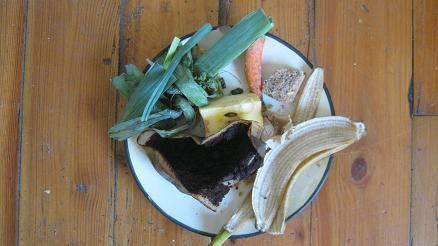
Place kitchen scraps like those in the freezer before feeding your worms with them.
Feeding your worms
Earthworms that live in worm compost bins don't have teeth and will only consume food when it starts to become soft and decompose. So the softer the food they are offered the more they will be able to eat in a certain amount of time. It works pretty much the same way it does with us humans. We can swallow soft fruit or pudding much faster than a tough piece of meat.
This means that a worm farm owner can influence the speed and amount of food his worms can consume. To maximize the worms feeding quantities their food should be prepared for them to be easy to digest.
If kitchen scraps like apple cores, lettuce leaves, green beans and carrots are added to a worm bin fresh the worms will not be able to feed on them till they start to decompose and become soft. In order to assist your worm herd you could collect your kitchen waste for a while in a bucket with a lid where the organic material can start to age. This way the worms will be able to start munching on it sooner once the scraps have been added to the worm bin.
Another good way to make the worm food easier digestible for a worm herd is to place it over night in a freezer before giving it to the worms.
The
freezing process will kill any fruit fly eggs on your fruit peels (a
nice side effect ) and make the materials age and decompose quicker once
they have been defrosted.
So if the worms are presented with a constant supply of ready available food, how much will they be able to eat per day?
As a guide line we work on the assumption that 4000 compost worms (Eisenia fetida or Eisenia foetida) will weigh about 1kg / 2lb 3.27oz and will be able to eat 500g / 1lb 1.6370oz
Now
I do not suggest to get out your scale and start weighting your kitchen
scraps and calculate the optimum feeding levels for your worm farm.
That would be way to time consuming and unnecessary. When feeding your
worms you don't have to follow a strict or rigid time table. Adding food
once a week or every other week is usually quite sufficient. If you
however prefer feeding your worms on a daily basis that will be fine as
well.
As long as there is always something to nibble on for the worms will be fine.
Initially when a worm farm has just been set up it will be best to be patient and to add food in moderation to prevent a build up of rotting organic matter in the containers that will start to smell badly and attract pests like flies and fruit flies.
A new worm farm comes usually with about 500 worms which will multiply into thousands within just a few month. The more worms a worm farm holds the more kitchen-, pet- and garden waste will it be able to convert into nutrient rich worm castings. So the secret to a productive worm bin is to prepare the food for the worms for easier consumption and to be patient for the first few month till it is in full swing. Feeding your worms is not rocket science, just make sure
there is always a layer of at least 5 cm / 2 inches of organic material on the surface of your worm bin and your worms should never be in danger of starving. For more information about worm food have a look at our links to other pages on our site below.
For more worm compost related information!
Type your question or keywords (for example “earthworm”) into the search box below.
How to create an income with earthworms
---------
----------
-----------
-----------
----------
Return form "feeding your worms" to the Home page
------------
-------------
-----------
Search / Suchen
On SPECIAL
"How to start a profitable worm business on a shoestring budget
Order a printed copy from "Amazon" for only
$11.95
or a digital version from the "Kindle" store for only
$4.95
Prices valid till 31.12.2025
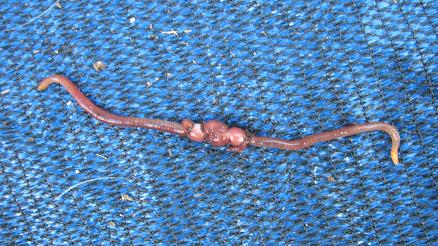
Our New Book
Order the Kindle E-book for the SPECIAL PRICE of only
$3.95
Prices valid till 31.12.2025!
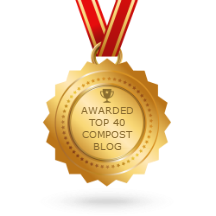

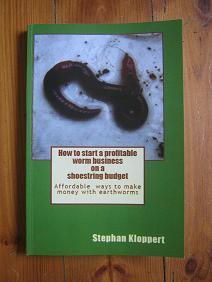
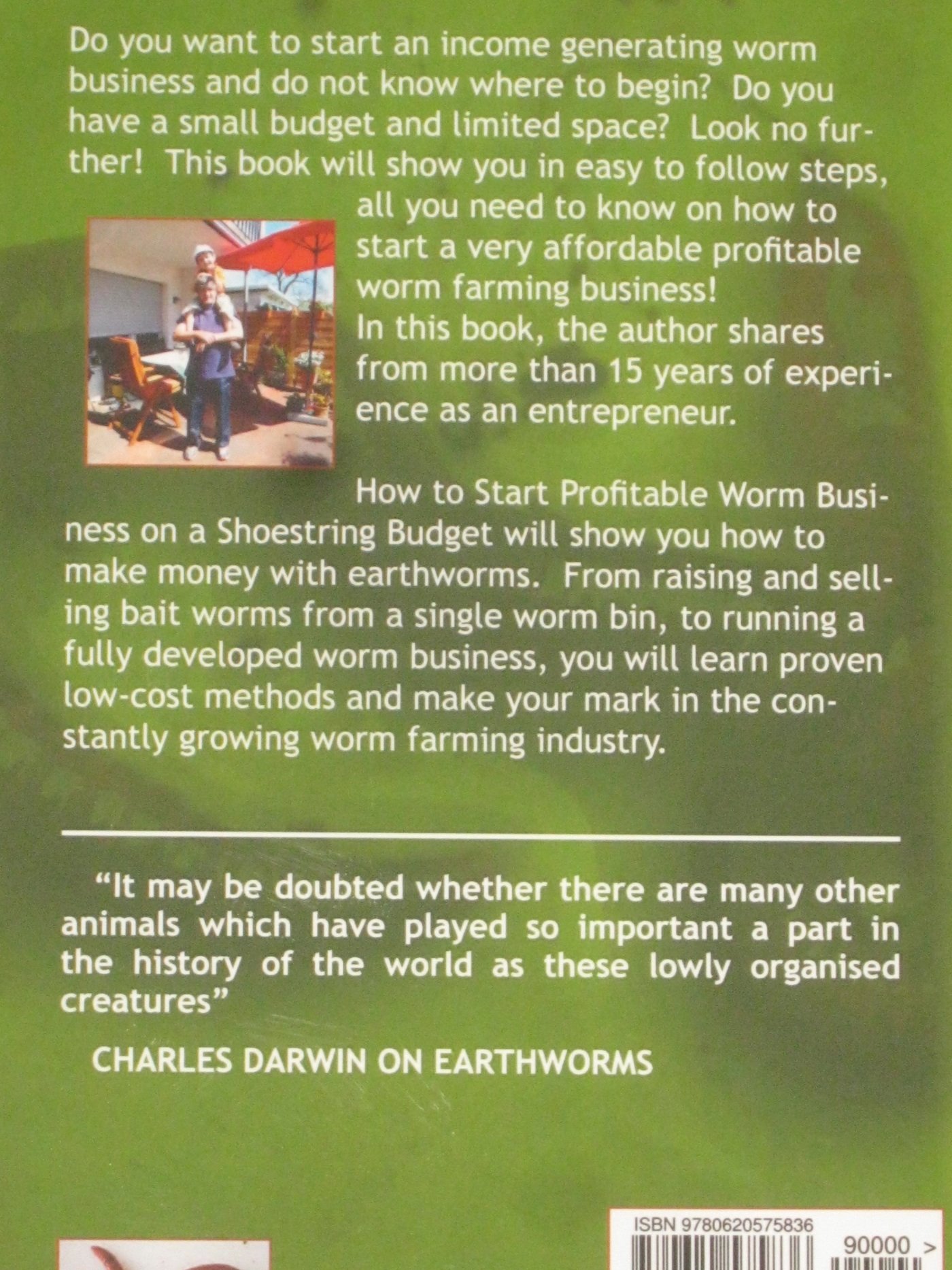

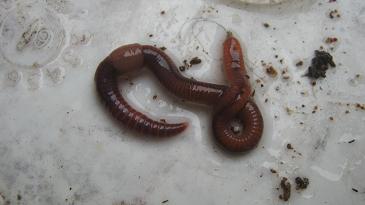
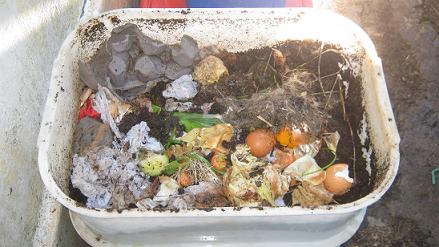
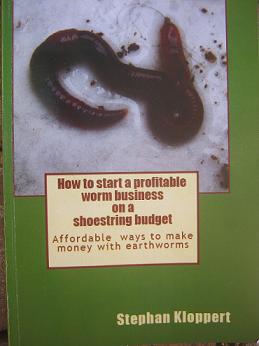
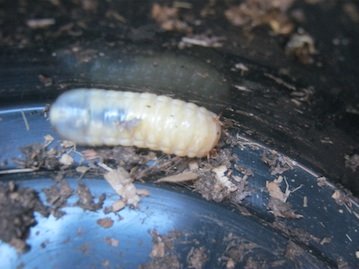
New! Comments
Have your say about what you just read! Leave me a comment in the box below.